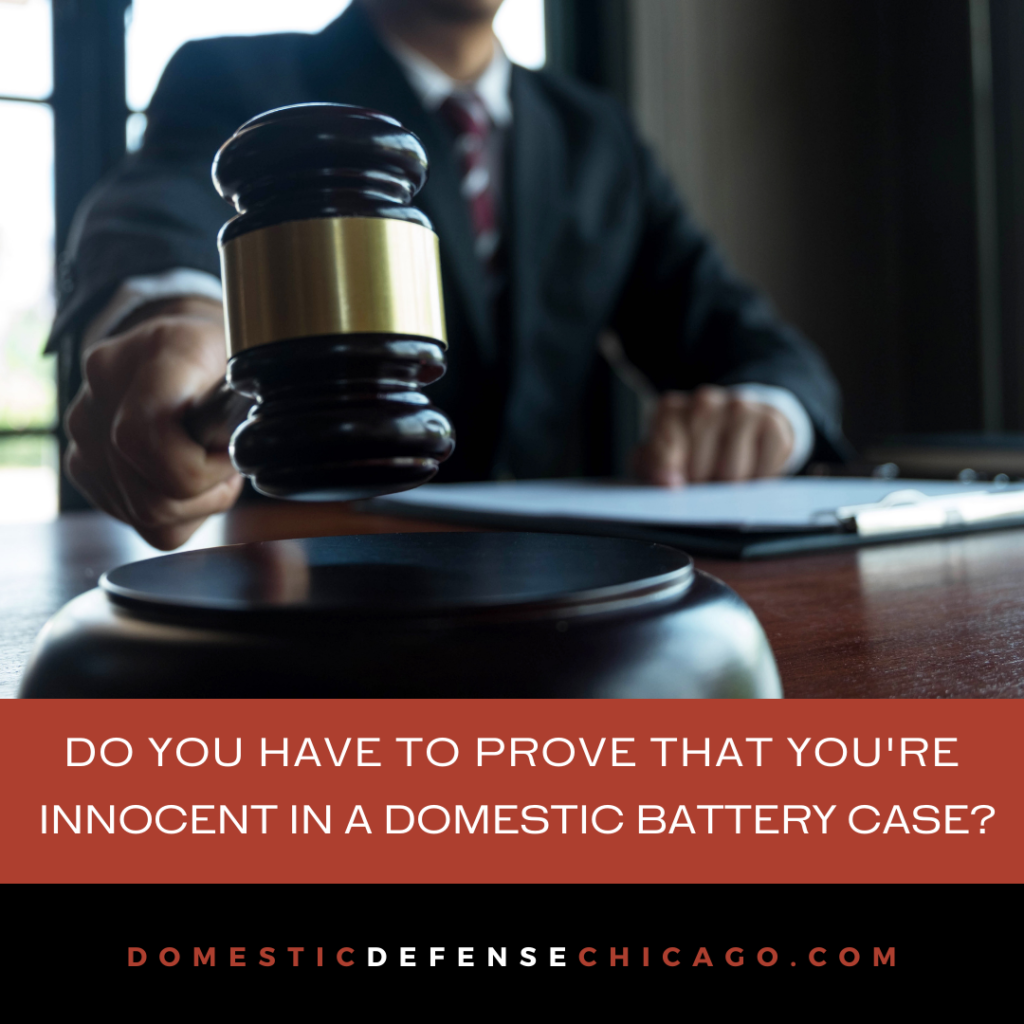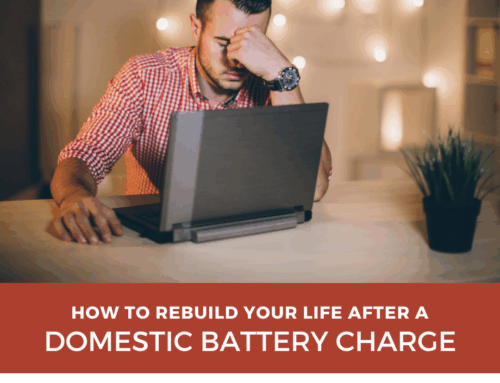If you’ve been accused of domestic battery, how do you show the court that you’re innocent? You don’t. This guide explains.
Do You Have to Prove Your Innocence in a Domestic Battery Case?
When the state of Illinois accuses someone of domestic battery or aggravated domestic battery, it isn’t up to the accused person to prove their innocence. Instead, the prosecutor – the attorney acting on the state’s behalf – is responsible for showing that the accused person is guilty.
The prosecutor needs to have enough evidence to convince a judge or jury that the person being accused of the crime did it. If the prosecutor doesn’t have enough evidence, they may agree to drop the charges or offer the accused person a plea bargain. A plea bargain is a deal that someone accused of a crime makes with the state; they agree to plead guilty to a lesser crime rather than take their chances on being convicted of something more serious.
Related: What if you’re charged with domestic battery in the presence of a child?
How Do Attorneys Get “Not Guilty” Verdicts?
Your attorney won’t go into court without preparing a way to show the judge or jury that the prosecution doesn’t have enough evidence to prove that you certainly committed a crime. In fact, your lawyer may try to cast doubt on everything the prosecution says. When judges or juries are unsure that the prosecutor has the right facts, or they are not certain that a person has committed a crime, they’re not supposed to convict.
Naturally, your attorney will present your alibi in court. Additionally, he’ll point out weaknesses in the prosecution’s case. Finally, your attorney may suggest that you testify (though you never have to do so if you don’t want to) so you can tell your side of the story.
Related: Do you have to turn in your guns if someone gets an order of protection against you?
Do You Need to Talk to an Attorney About Domestic Battery Defense?
If you need to talk to a domestic battery defense attorney in Illinois, we’re here to help. Call us at 847-920-4540 now – we’ll be happy to give you a free consultation and talk to you about your options.







Leave A Comment
You must be logged in to post a comment.